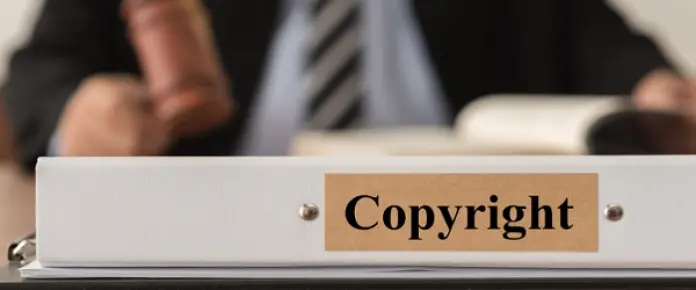
Don’t miss our content
SubscribeBy: Nora Oyarzabal and Marta Zaballos
In its judgments of Nov. 11, 2019, Nov. 19, 2019, and Nov. 20, 2019, the Judicial Review Chamber of the Supreme Court dismissed the claims filed by the collective copyright and related rights management entities Centro Español de Derechos Reprográ?cos (“CEDRO”), Visual Entidad de Gestión de Artistas Plásticos (“VEGAP”), Artistas, Intérpretes o Ejecutantes, sociedad de gestión de España (“AIE”), Asociación de Gestión de Derechos Intelectuales (“AGEDI”), Derechos de Autor de Medios Audiovisuales (“DAMA”), and Sociedad General de Autores y Editores (“SGAE”) (jointly, the “MEs”), and it ruled that the State bears no financial liability for damages caused by the financing system of compensation for private copying charged to the General State Budget (“GSB”), which went into force in 2011.
The origin of the dispute lies in the approval of Royal Decree Law 20/2011, of December 30, on urgent measures on budget, taxation and financial matters (“RDL 2011”), which envisaged the fair compensation for private copying charged to the GSB, thus eliminating the royalty fee system in force up to that point, which consisted of charging a fixed sum to the manufacturers and distributors of equipment, copying devices and media suitable for making or storing private copies. The rationale for this legislative reform introduced by the RDL was the Padawan, CJEU judgment of October 21, 2010 (case C-467/08); Thuiskopie, CJEU judgment of June 16, 2011 (case C-462/09); and Amazon, CJEU judgment of July 11, 2013 (case C-521/11) cases, in which the CJEU ruled that the indiscriminate application of the royalty fee to all types of equipment and media, including for purposes other than private copying, was not in line with Directive 2001/29, which regulates the limits to private copying and the fair compensation system that remunerates rights holders (“Directive 2001/29”) .
Invalidity of Royal Decree Law 20/2011
Several MEs then challenged RDL 2011, and the Supreme Court referred a preliminary ruling to the Court of Justice of the European Union (“CJEU”), which determined, in its judgment of June 9, 2016 (EGEDA case, C-470/14), that a system of fair compensation for private copying that, based on an estimate of damages caused, is paid by charging it to the GSB, when it is not possible to ensure that the cost of that fair compensation is borne by the users of the private copies, is contrary to Directive 2001/29.
In line with this case law, the Judicial Review Chamber of the Supreme Court confirmed, in its judgment of November 10, 2016, the position of the CJEU and declared RDL 2011 invalid. As a result, the royalty fee system was reinstated through Royal Decree Law 12/2017, of July 3.
Claim of the Management Entities
After presenting the legislative development of the system of fair compensation for private copying, we should analyze the claimants’ arguments in the cases ruled by the Supreme Court in its judgments of Nov. 11, 2019, Nov. 19, 2019 and Nov. 20, 2019.
Specifically, the MEs claimed different compensation amounts—up to €58 million—for damages to the intellectual property rights holders they represent for not receiving adequate fair compensation for private copying in 2014, under the compensation system charged to the GSB, and they asserted the financial liability of the State, given that it was responsible for changing the royalty fee system to the system of fair compensation for private copying charged to the GSB.
Supreme Court’s response
The Supreme Court dismissed their claims, considering that the system of fair compensation for private copying charged to the GSB established by the RDL is not in itself contrary to Directive 2001/29 but that, as follows from the CJEU’s judgment in the EGEDA case (C-470/14).
“What makes that system [contradict Directive 2001/29] is that it does not guarantee that the burden of financing that fair compensation only falls to the users of the private copies.”
Consequently, it continues, the infringement is seen in the failure to determine who the final debtor of the compensation is and not such much in the legal basis for the claimants’ monetary claim, i.e., a lower remuneration or recoverable financial damages.
It is not clear either, according to the Supreme Court, that the infringement was full, clear, obvious, intentional or inexcusable. This is highlighted by the fact that there was no intervention of the European Commission advising that the system could be contrary to European regulations and by the advocate general ruling in favor of the national regulations’ compatibility with the European ones. All of the above confirms that there is serious and reasonable room for uncertainty that also lies in where the infringement is seen, i.e., the lack of guarantee that it is the user who bears the fair compensation, and not in the 2011 model as such.
With respect to the claim filed by the SGAE, the Supreme Court dismisses its arguments, given that the claimant attributes the damages to the Order that set the amount of compensation for 2014, so there could never be liability on the State’s part, insofar as that Order is not a general provision; rather, it is a multiple administrative act with annual validity that sets the quantum of fair compensation for the 2014 financial year.
Don’t miss our content
Subscribe